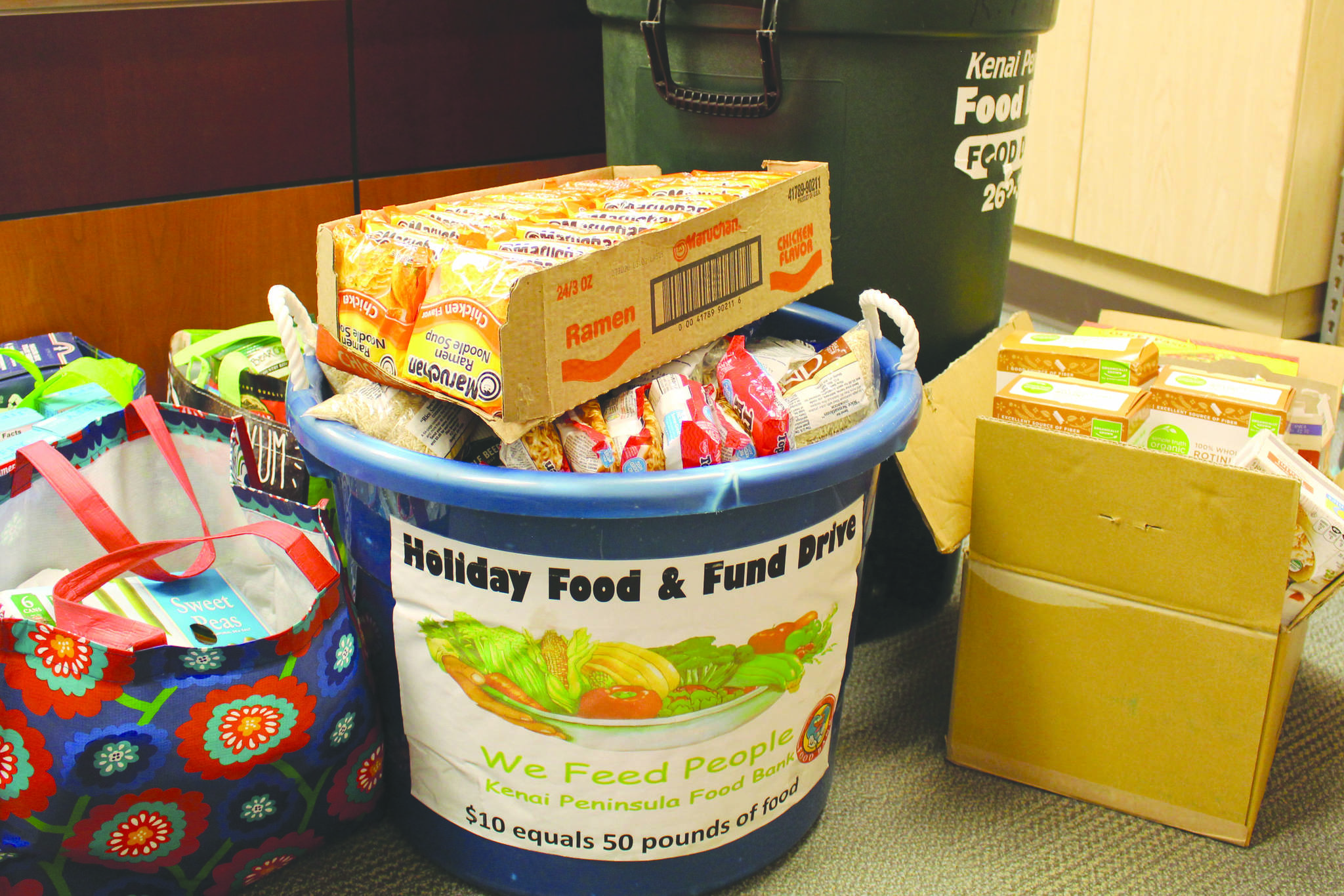Things are changing quickly day to day for the Kenai Peninsula Food Bank due to the new coronavirus.
One thing has not.
“We are committed to not stopping what we are doing,” said Greg Meyer, executive director at the food bank.
Meyer said the food bank has stuff coming at it from all directions.
On one front are all the health restrictions coming from the U.S. Department of Agriculture, federal government and the state designed to slow the spread of the new coronavirus.
On another front is the increasing demand due to economic effects of the coronavirus. A state mandate limited restaurants to take-out dining as of 5 p.m. Wednesday. Gyms and other entertainment venues also were closed.
“It’s rough,” Meyer said. “As smaller restaurants close their doors, a lot more people are not working and we’re trying to be able to provide for them.”
Meyer said the food bank has changed the way it keeps records of those requesting food in order to limit contact, making keeping records a slower process.
“I couldn’t throw out a number, but we’re definitely seeing an increase,” Meyer said of those requesting food.
Meyer said the food bank also provides some food for Meals on Wheels programs at local senior centers. Those programs also have seen an increase, with seniors looking to stay home because they are particularly vulnerable to the new coronavirus.
Meyer added that procedures have changed a bit in delivering food to smaller pantries, like senior centers and churches, to assure no more than 10 people are present at the same time.
The food bank has three major programs and all have been affected by the new coronavirus.
The first program is a soup kitchen, where people used to be able to come in and get a hot meal.
“The big thing there is we’ve shifted everything to-go,” Meyer said.
This has opened up a new need for donations.
“What’s been really helpful is lunch bags, sandwich bags or other containers,” Meyer said of plastic containers with tight-fitting lids. “Then lunch kinds of things, like individual fruit, apple sauce, sandwich meat, fruit snacks and portable bags of chips.”
The second program is food boxes. Here, government commodities, such as rice, dry beans and canned meats, are combined with perishable items like fruits, vegetables, dairy products, bread and even some meats.
Many of the perishable items come from stores. With residents stocking up due to the new coronavirus threat, stores don’t have as much to donate.
“It’s dropped three-quarters,” Meyer said. “Everything is getting bought up.”
The executive director said the food bank is still making do by tapping into resources and through the generosity of the community.
Meyer said it used to be possible for those picking up food boxes to enter the building and choose the contents of the box, but now food boxes are only available for pick-up to limit how many people enter the building.
The third program is government commodities. This is all the rice, beans and canned goods that come from the Food Bank of Alaska in Anchorage. While there has been increased demand for commodities, Meyer said the good news is he hasn’t heard about any disruption of the supply of commodities.
The food bank does do a program to get commodities boxes to seniors.
“Today, we had a volunteer that took food and senior commodities boxes to people who are at the risk level where they need to stay in their homes,” Meyer said, adding those seniors would normally leave their residences to get those meals. “We’re trying to figure out ways to get food out to people.”
The food bank has been trying for a month to replace its truck, which stopped running. The food bank now has use of a truck sent from the Food Bank of Alaska in Anchorage. Needing a new truck is just one of the reasons the food bank also could use money right now.
“In times like this, we’re spending extra money on fuel and extra staff, so we could still use financial donations,” Meyer said, adding the food bank is a nonprofit.
“Every day’s been a new day, every day we’ve been changing how we do things,” Meyer said. “The focus is getting food out to people.”
Residents who want to donate items to the food bank can bring them during open hours from 9 a.m. to 4:30 p.m. to the warehouse at 33955 Community College Drive, or leave them in the drop box on the K-Beach Road side of the building next to the warehouse door. Financial donations can be made at kpfoodbank.org or by sending checks. For more information, call the food bank at 907-262-3111.

